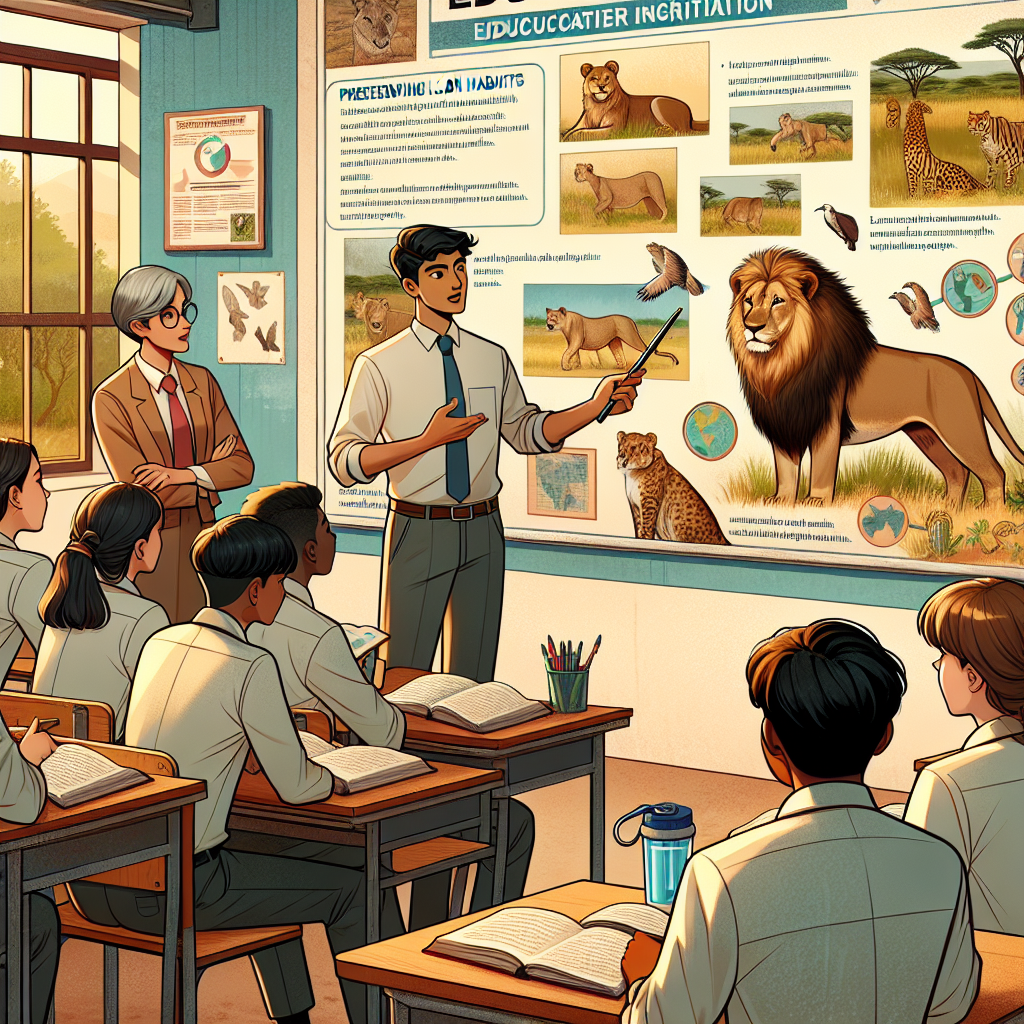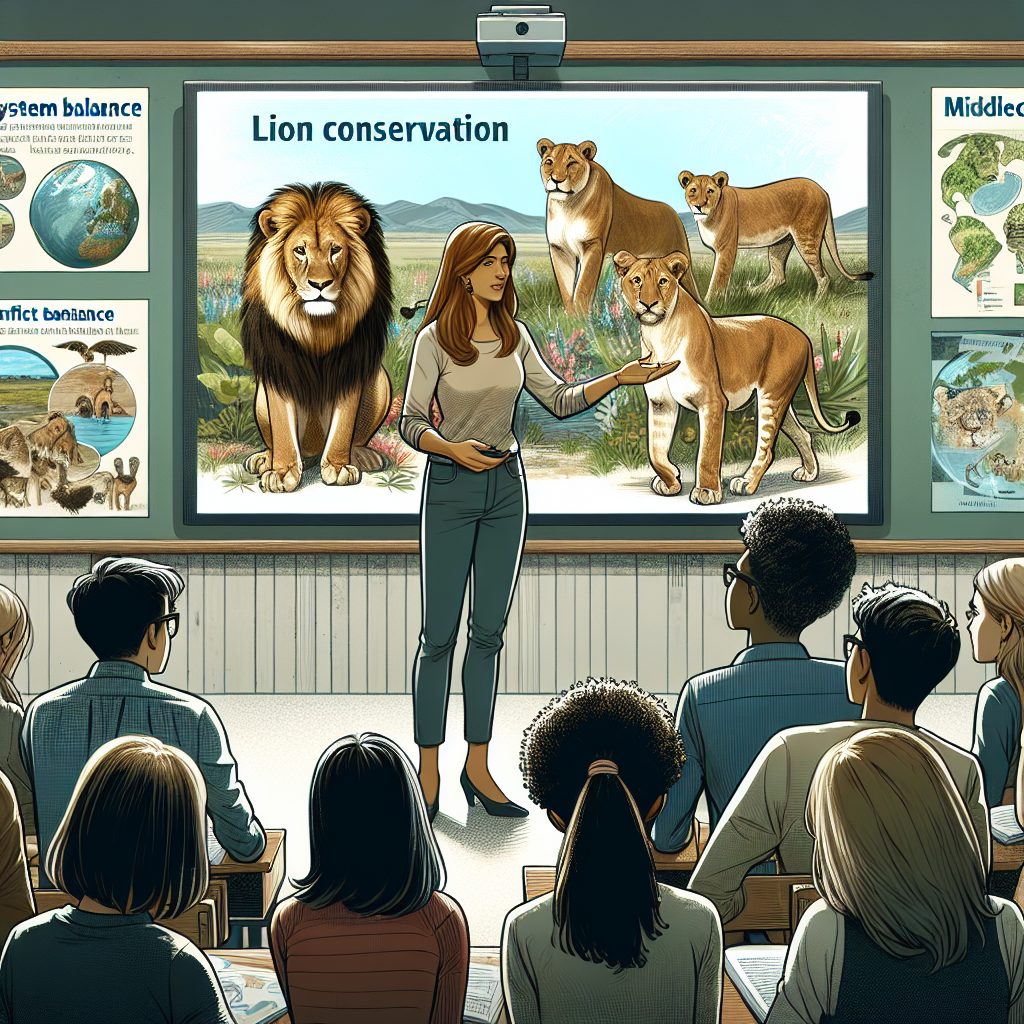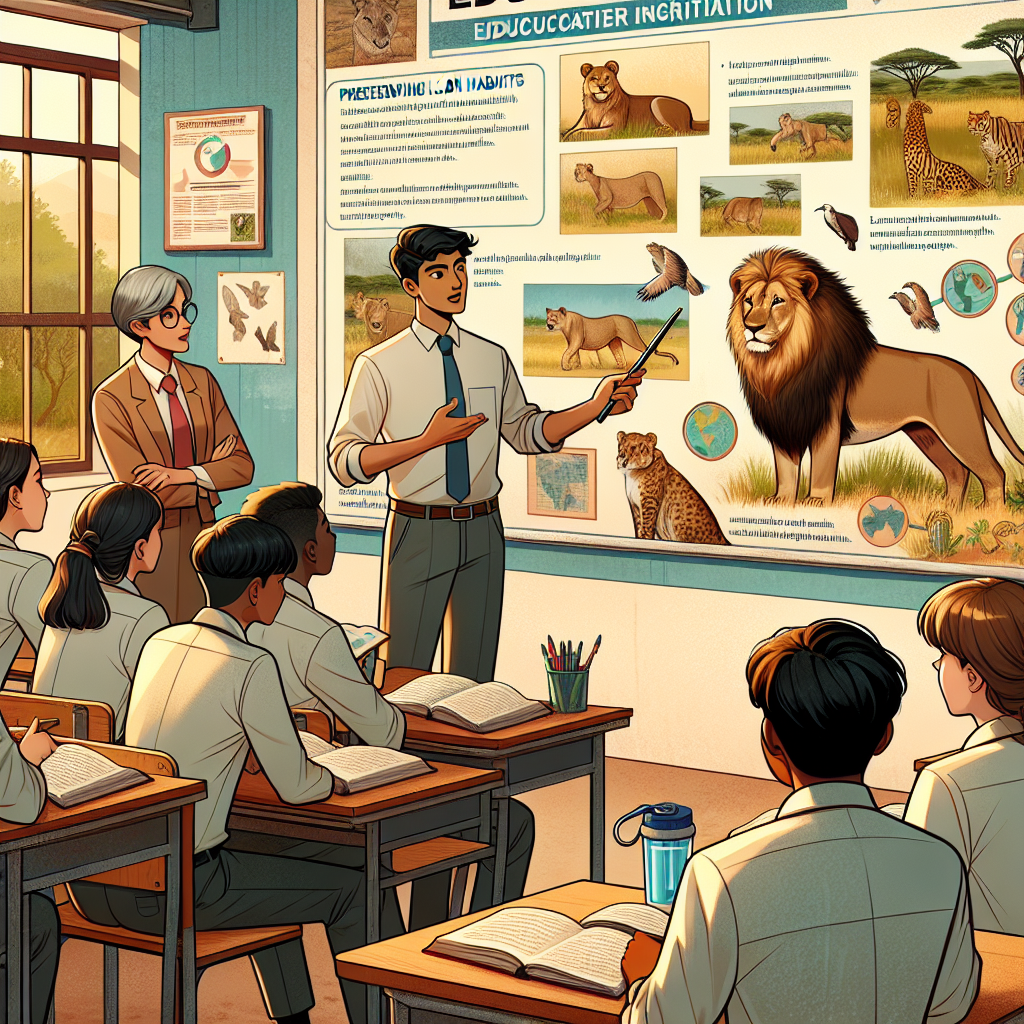So, you’ve heard about lion conservation, right? Well, let’s talk about how education plays a crucial role in preserving these magnificent creatures. See, lions are facing numerous threats, from habitat loss to poaching, and their population is declining rapidly. But by spreading awareness and knowledge about the importance of lions, their ecosystems, and the threats they face, education becomes a key tool in initiating change. This article explores the significant role education plays in lion conservation efforts and how it empowers individuals to work towards a brighter future for these iconic animals.
The Importance of Lion Conservation
Lions are one of the most iconic and majestic creatures on our planet. Unfortunately, their populations have been steadily declining over the years. It is essential to understand the importance of lion conservation and take action to preserve these magnificent animals for future generations.
Understanding Lion Behavior and Threats
To effectively conserve lions, it is crucial to have a deep understanding of their behavior and ecological role. Lions play a vital role in maintaining a balanced ecosystem by controlling herbivore populations. They help prevent overgrazing and maintain the biodiversity of their habitats. However, several threats put lion populations at risk, including habitat loss, poaching, human-wildlife conflict, and trophy hunting.

Education as a Tool for Lion Conservation
Education plays a crucial role in raising awareness about lion conservation. It is essential to educate people about the importance of lions for the environment and the consequences of their decline. By imparting knowledge about lion behavior, their ecological role, and the threats they face, education can inspire individuals to take action and support conservation efforts.
Another aspect of education for lion conservation is promoting coexistence between lions and humans. Education can help local communities understand ways to minimize human-wildlife conflict, such as implementing livestock protection measures or creating buffer zones between communities and lion habitats. By providing this knowledge, education can foster better relationships between lions and humans, ultimately benefiting both parties.
Integrating Lion Conservation into School Curricula
One effective way to ensure lion conservation becomes a priority is by incorporating it into school curricula. By integrating lion conservation topics into science classes, students can learn about the importance of lions and the threats they face from a young age. This early education can instill a sense of responsibility and empathy towards lions and their conservation among the younger generation.
Educational programs and field trips to conservation areas can also be organized to expose students to real-world lion conservation efforts. These hands-on experiences can provide valuable insights and inspire future conservationists. By incorporating lion conservation into school curricula, we can ensure a deeper understanding and a more widespread commitment to preserving these magnificent creatures.

Building Community Engagement and Support
To successfully conserve lions, it is essential to engage and collaborate with local communities. Educational outreach initiatives can be implemented to raise awareness among local residents about lion conservation. These programs can involve informative workshops, community meetings, and interactive sessions to educate communities about the importance of lions and the steps they can take to support conservation efforts.
Collaborating with local communities is crucial as they are directly affected by lion populations. By involving them in conservation projects and seeking their perspectives, we can build partnerships based on mutual understanding and trust. Incorporating their traditional ecological knowledge into lion conservation strategies can lead to more effective and culturally appropriate initiatives.
Training Future Conservationists
To ensure a sustainable future for lion conservation, it is crucial to provide educational opportunities for aspiring conservationists. By offering scholarships, internships, and training programs, we can nurture a new generation of passionate individuals committed to saving lions. These opportunities should not only focus on theoretical knowledge but also provide practical experience in the field.
Additionally, empowering local communities through education can augment their ability to participate actively in lion conservation efforts. By equipping them with the necessary skills and knowledge, we can create a network of empowered individuals who can contribute to the long-term conservation of lions and their ecosystems.
Research and Education for Lion Conservation
Research plays a vital role in shaping effective conservation strategies for lions. Education can support research initiatives by encouraging scientists and researchers to study lion behavior, monitor populations, and identify key conservation areas. Educational programs can provide funding and resources for research projects, such as collecting data on lion movements, studying their habitat requirements, and quantifying the impact of conservation efforts.
By integrating research and education, we can ensure that conservation efforts are evidence-based and scientifically grounded. This collaborative approach allows us to gather valuable data to measure the success of conservation initiatives and make informed decisions to improve future efforts.
Addressing Human-Wildlife Conflict
One of the significant challenges facing lion conservation is human-wildlife conflict. Lions occasionally prey on livestock, leading to retaliation from affected communities. Education plays a crucial role in reducing livestock predation by lions and finding sustainable solutions to this conflict. By teaching communities about effective livestock protection measures and promoting predator-friendly practices, we can minimize conflicts and foster coexistence.
Moreover, education can help create alternative livelihoods for communities affected by lion predation. By providing vocational training or supporting the development of alternative income-generating activities like eco-tourism and sustainable agriculture, we can reduce the economic reliance on livestock and mitigate the conflicts between lions and humans.
The Role of Zoos and Conservation Organizations
Zoos and conservation organizations have a significant role to play in lion conservation education. These institutions can provide educational initiatives that raise awareness about the plight of lions and the importance of their conservation. Through interactive exhibits, educational workshops, and outreach programs, zoos and wildlife centers can educate visitors of all ages about lions, their behavior, and the threats they face.
Partnerships between zoos and conservation organizations can also enhance education efforts. By collaborating, these institutions can share knowledge, resources, and expertise to create impactful educational programs. Together, they can work towards a collective goal of raising awareness, promoting conservation, and inspiring action for lion conservation.
Measuring the Impact of Education in Lion Conservation
Monitoring and evaluating the impact of educational programs are essential to gauge their effectiveness. By measuring changes in attitudes, behaviors, and knowledge levels before and after educational initiatives, we can assess the impact of these programs on conservation efforts. This information allows us to refine and improve educational strategies to maximize their effectiveness.
Additionally, measuring the impact of education can help secure funding and support for future initiatives. Demonstrating positive outcomes generated through education serves as evidence for the importance of continued investment in lion conservation education.
In conclusion, education plays a vital role in lion conservation. By understanding lion behavior, raising awareness about the threats they face, promoting coexistence, integrating conservation into school curricula, engaging local communities, training future conservationists, supporting research initiatives, addressing human-wildlife conflict, partnering with zoos and conservation organizations, and measuring the impact of education, we can make significant strides towards conserving these magnificent creatures and their habitats. With widespread education and increased public support, we can work together to ensure a future where lions continue to roam our planet for generations to come.

